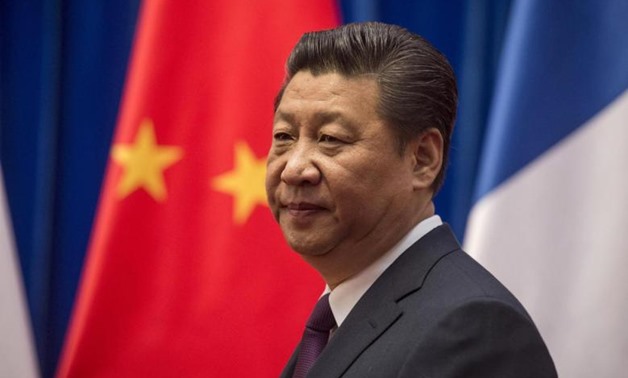
Chinese President Xi Jinping waits to welcome French Prime Minister Manuel Valls at the Great Hall of the People in Beijing - REUTERS/Fred Dufour/Pool
SEOUL/BEIJING - 2 November 2017: Chinese President Xi Jinping replied to North Korean leader Kim Jong Un's congratulatory message on China's Communist Party Congress, saying he hopes to promote ties between the two countries, North Korea's state news agency said on Thursday.
The friendly exchange is relatively routine, but it comes as China has come under intense pressure from the United States to do more to rein in the North's missile and nuclear tests, which have raised tensions globally.
China has been increasingly frustrated over ally North Korea's weapons tests in defiance of U.N. resolutions, repeatedly calling for restraint and urging all sides to speak and act carefully.
Xi's message comes days before U.S. President Donald Trump makes his first official visit to Asia, with North Korea high on the agenda. It follows Tuesday's unexpected agreement between Seoul and Beijing to move beyond a year-long dispute over the deployment of a U.S. anti-missile system in South Korea.
"I wish that under the new situation, the Chinese side would make efforts with the DPRK side to promote relations between the two parties and the two countries to sustainable soundness and stable development and thus make a positive contribution to ... defending regional peace and stability and common prosperity," Xi wrote in the message dated Nov. 1, according to the North's official news agency KCNA.
DPRK stands for the Democratic People's Republic of Korea, North Korea's official name.
Chinese Foreign Ministry spokeswoman Hua Chunying did not give details of the message from Xi to Kim but confirmed it had been sent to express thanks for Kim's congratulatory messages.
Many countries had sent messages to China over the congress and, to be polite, China had written back to say thank you to them, she added.
"I believe this is in the interests of both sides and has important meaning for resolving the present problem we are facing and maintaining regional peace and stability," Hua told a daily news briefing in Beijing.
The message had yet to be carried by Chinese state media as of Thursday afternoon.
China and North Korea often exchange diplomatic correspondence and ceremonial letters, although personal messages between the leaders tend to be few.
Zhao Tong, a North Korea expert at the Carnegie-Tsinghua Center in Beijing, said the exchange of messages appeared "totally routine", while noting that Kim's congratulatory message was shorter than one sent after the previous Communist Party congress five years ago, when Xi first came to power.
After a flurry of activity including a sixth nuclear test on Sept. 3, Pyongyang did not disrupt last month's party congress with another test as some analysts had expected. It has not tested a missile since launching one over Japan on Sept. 15, the longest such lull this year.
But Zhao said this was likely due to "technical reasons rather than political reasons".
"There are no signs that they are going to give up on additional missile or nuclear tests," he said.
Nam Seong-wook, a professor of North Korea Studies at Korea University in Seoul, said Xi's reply to Kim could be interpreted as "China's strategic ambition to embrace both North Korea and South Korea" ahead of Trump's visits to South Korea and China.
Xi has previously sent messages to Kim, most recently last year when Xi expressed his congratulations for a party congress in North Korea. Neither leader has visited the other's country since assuming power.
Kim sent a congratulatory message to Xi last week at the end of China's Communist Party Congress, wishing him "great success" as head of the nation.


Comments
Leave a Comment